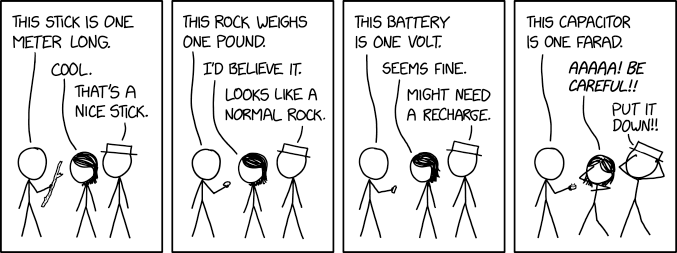this post was submitted on 25 Jun 2025
450 points (97.7% liked)
xkcd
11717 readers
809 users here now
A community for a webcomic of romance, sarcasm, math, and language.
founded 2 years ago
MODERATORS
you are viewing a single comment's thread
view the rest of the comments
view the rest of the comments

They were all done by scientists or engineers.
The meter was defined based on what they calculated as 1 millionth of the length of Paris' meridian.
The second was 1/86400 of a day, which makes sense with the angle/circle nomenclature on the clock.
The gram was initially set to be the mass of 1cm³ of water at 4°C - which is why 1l of water ≈ 1kg.
The concept of length is way older than these definitions, same for weight and so on.
The meter is an awesome example for what I mean: the 1/1000000 wasn't random. From my understanding it won over the alternatives in dezimal because of it's relative closeness to an arms length and the definition was used to remove issues in France because of the (metric) fuckton of different measurements for length.
And the second example of yours is even better describing what I meant: it's just making sense and is practical not a deep scientific reasoning.
And I won't bliebe that the foot and inch was conceived by anyone who has a scientific approach.
To be clear: you're right that basically by definition the units were done by professionals. I try to point out that for the more broader used units practical aspects were at least as important (after all it wasn't a square meter that was used for the gram but a centi of one).
It's also the length of a pendulum with a half period of 1 second.
Whaaaaaaasaaaa
I have no idea how I've missed that y today I'm over of the lucky 10,000 I assume. Thanks!